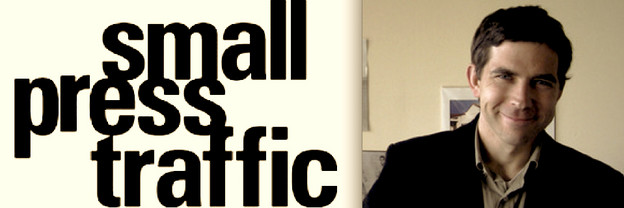
Kaplan Harris responds to Tim Jacobs's response

We are pleased to publish Kaplan Harris's response to Tim Jacobs's response to Kaplan's article “The Small Press Traffic school of dissimulation: New Narrative, New Sentence, New Left,” which we published on April 7, 2011. Here is the new response:
*
My thanks for this opportunity to elaborate on Tim Jacobs's column and to clear up any misunderstandings. Jacobs's column "Ramble" is preceded by five years of Poetry Flash contributions that cover readings and events throughout the Bay Area. They are an invaluable resource for anyone — like myself — interested in mapping what Jacobs rightly identifies as “a literary culture that was very diverse and growing rapidly” throughout the 1970s. The tone of the coverage is particularly important because it can allow one to track the shifting alliances and divisions in the poetry community at large, especially the faultlines that separate aesthetic, activist, and institutional affiliations.
The early coverage is frequently given to flashes of ridicule and scorn — or what today might be labeled snark. To be sure, there are other tones as well, many of them displaying effusive praise. Poetry Flash founding editor Jon Ford, however, expressed a certain pride that his newsletter had acted as "conscience for the Bay Area": "not just to let audiences know there was someone out there listening, but to let audiences be warned about sloppy productions and poets who had nothing new to offer" (Poetry Flash 121, April 1983). These “warnings” were hardly couched in bourgeois politeness. On the contrary, Ford was pleased that a “free-swinging, plain speaking, even hostile attitude” had characterized the newsletter's early coverage. The tenth anniversary issue even republished a compilation of barbed comments from staff contributors, among them Ford, Richard Silberg, Joyce Jenkins, Alan Soldofsky, Joe Flower, and Tim Jacobs himself. The compilation was like a badge of honor. No wonder that staff member Jana Harris (no relation to me) elsewhere recalls that early issues had earned the newsletter monikers like “Poetry Flush” and “Hot Flash.”[1]
But I am happy to clarify that Jacobs tends to be one of the more generous and tolerant contributors, his reviews often humming with accolades not seen elsewhere in the early years of the newsletter. Perhaps Jacobs sought to act as a counterbalance to the hostility with his more positive commentaries, like the one I quoted from his review of Robert Glück and Bruce Boone at the Grand Piano. That said, even Jacobs indulged in biting critique on repeated occasions. My favorite might be his cautionary parable about the types of people encountered at poetry receptions, like “The Level Stare,” “The Historian,” “The Flatterer,” and “The Surmiser.”[2] Jacobs also once described his role as the “community gossip” (Poetry Flash 69, December 1978) — and it was based on moments like these that I came to understand his column. — Kaplan Harris
* Tim Jacobs's response to Kaplan Harris's article
* Kaplan Harris's article on Small Press Traffic
NOTES
1. Jana Harris, “Poetry Flash Meet NYC Poetry Calender,” Contact II 1.6 (January-February 1978), 8.
2. E.g., the Historian: “maps your life in detail for you, tell you exactly what you learned, where you learned it, from whom you learned it, and exactly what you don't know about the subject, even though this creature has absolutely no previous knowledge of you or your connection with the matter at hand.” Tim Jacobs, Poetry Flash 80 (November 1978).